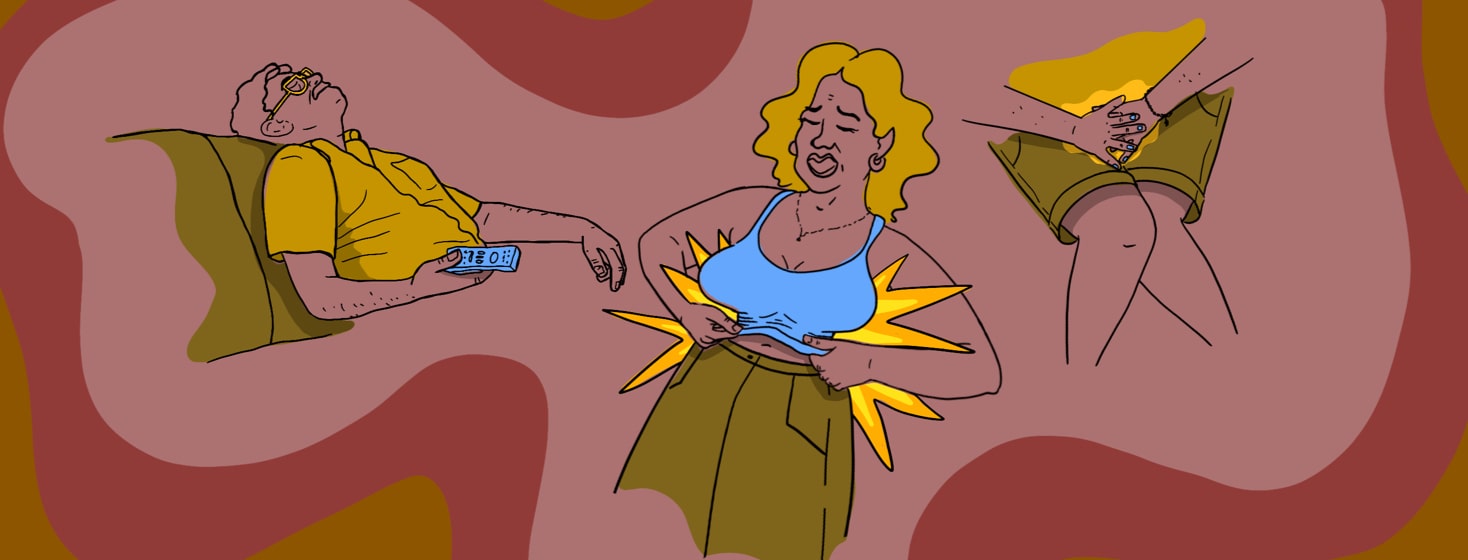Community Views: The Most Unexpected COPD Symptoms
Shortness of breath is the most common symptom of chronic obstructive pulmonary disease (COPD). However, people with COPD quickly discover that there are many other symptoms as well.
To gain insight into these symptoms, we asked the COPD.net Facebook community, “What is the most unexpected symptom you experience with COPD?”
Community members share their 5 uncommon COPD symptoms
Community members shared some surprising and eye-opening details about the symptoms they live with.
Extreme fatigue
Aside from shortness of breath, fatigue is the most common symptom of COPD. Many respondents shared how exhausted they feel with COPD.1,2
“How it just sucks the life out of me when I have a flare-up!”
“Having no energy.”
“The total exhaustion after exertion. There’s no such thing as catching your second wind.”
“The dreadful tiredness that descends on you out of the blue.”
“Being dead dog tired.”
There is no conclusive answer to what causes COPD fatigue. Shortness of breath is not considered a primary cause.
Researchers in the Netherlands are conducting a 2-year study on COPD and fatigue that will look at behavioral, systemic, physical, and psychological causes of fatigue.1,2
Sudden incontinence
An experience that has been shared many times is that members often struggle with bladder leaks (urinary incontinence).
“Sneezing uncontrollably, and then the bladder can’t control urine. Same with coughing, choking, or gagging.”
“I cough and pee. I wear panty liners every day.”
“Feeling the need to go to the bathroom when I run out of breath.”
Severe coughing or shortness of breath can cause incontinence. Incontinence contributes to poor health-related quality of life, partly because people who have this symptom are more home-bound.3
Certain medicines also contribute to incontinence. Unfortunately, doctors often do not look into incontinence as a symptom of COPD. If you have experienced incontinence, evaluating your treatment plan may help. Talk to your doctor about the possibility of stopping any drugs with urinary retention side effects.3
Chest tightness
Chest tightness was another unexpected symptom that respondents mentioned.
“I feel like I have a belt tied around me, just under my breasts. It is always squeezing and very uncomfortable.”
“The pain in my chest. Even though I do not cough that much, it feels like I am.”
“It feels like you always have a bra on.”
“I describe it as a vise tightening under my breasts.”
Chest tightness is the result of damage to the lungs and airways. With COPD, the lungs and airways become inflamed. Also, the body produces more mucus. This obstructs how air flows in and out. As air encounters obstacles, the chest feels tight.4
Sleep apnea
Sleep apnea occurs when the upper airway closes repeatedly during sleep. The condition commonly occurs with COPD and can lead to a higher risk of death if untreated. Many community members described how they deal with both conditions.4
“That it would affect my sleep.”
“I have been on a CPAP machine for over 20 years.”
“I have severe sleep apnea and have used a CPAP machine for almost 20 years. I can’t and won’t sleep without it.”
Both sleep apnea and COPD cause low oxygen saturation. Sleep apnea symptoms may include more daytime sleepiness, high blood pressure, and morning headaches.5
Pain
Many respondents mentioned feeling pain, particularly in the chest area.
“Sudden pain in my ribs.”
“Hurting when you breathe.”
“I would say the pain. I get it in the center of my chest, and I will get it in my back where my lungs are as well.”
“Pain. Not just ribs, but all over when my O2 sats drop.”
Chest pain affects between 22 and 54 percent of those with COPD. Many things can contribute to chest pain. Some may have chest pain from living with gastroesophageal reflux disease (GERD). The connective tissue (fascia) that covers the ribs can also be a source of chest pain. And bronchial spasms, which occur regularly with COPD, can cause severe pain.6,7
We appreciate all the responses to this question. Sharing your unexpected symptoms can help validate the patient experience of others who live with COPD.

Join the conversation